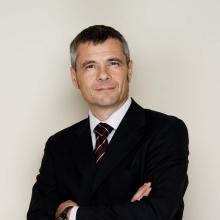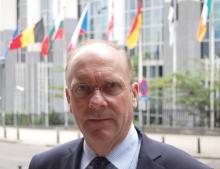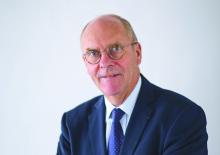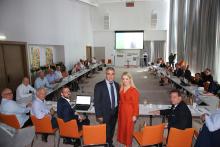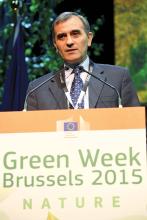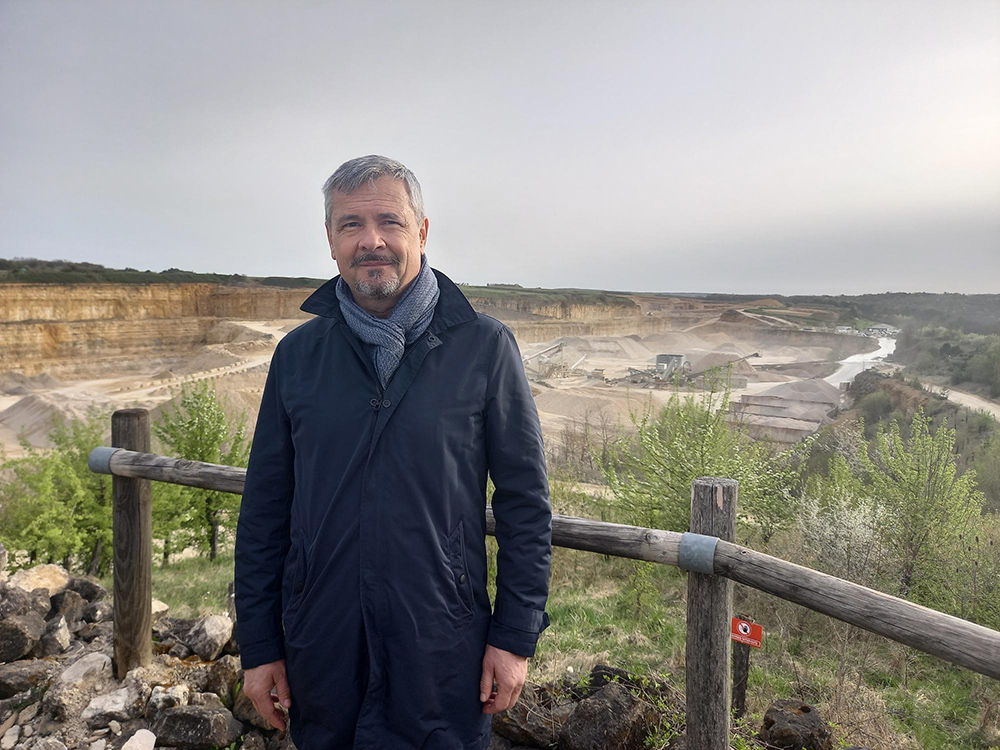
Being a black belt in judo, Alain Boisselon knows a thing or two about the dedication required to reach a cherished goal. Having devoted his 35-year working life to date to the French construction sector, the Vicat Group’s French aggregates business director has spent the last two years as president of UNICEM (The National Union of Quarry Industries & Building Materials), heading up a federation encompassing nine unions spanning the rock and mineral extraction industries (aggregates, natural stone), manufacturers of construction materials (ready-mix concrete, additives) and inert waste recovery companies.
To fulfil its diverse missions, UNICEM has a national structure organised around federal services, commissions and working groups, chaired by mandated professionals. Boisselon and his permanent UNICEM staff team represent 1,735 member companies, who, combined, employ hundreds of thousands of people and represent the first link in the French construction and public works chain.
The majority (61%) of UNICEM’s member companies are SMEs (small and medium-sized enterprises) and VSEs (very small enterprises) with a turnover of less than €2 million; 36% of member businesses have a turnover over €2 million; and a small but influential 3% represent international groups and family-owned ETIs (intermediate-sized companies) which each have a turnover of more than €100 million.
Speaking to Aggregates Business, Boisselon, based in Chambéry, an Alpine town in southeast France, highlights how the French quarrying and building materials industries meet a general interest need by supplying mineral materials that are essential to many sectors, especially building and public works, with local authorities accounting for 70-80% of mineral materials sales.
Commenting on the key challenges facing UNICEM members, he says: “The main issues that concern the profession are access to resources, changes in standards and regulations, which we must address to ensure that companies have legal certainty, and the control of energy costs, a subject that is even more worrying in the wake of the conflict between Russia and Ukraine. On all these subjects, we conduct monitoring and surveys among companies, so that we can then document and enrich our exchanges with the French public authorities. Dialogue is essential to raise the awareness of the authorities and administrations about our sector of activity.
“UNICEM is constantly demonstrating the economic and ecological necessity of producing materials ‘made in France’ and from a local industry. To maintain and support this local industry, which generates jobs that cannot be relocated, we submitted proposals to the candidates in the recent French presidential election to make future executives aware of the importance of maintaining a local and sustainable mineral materials industry.
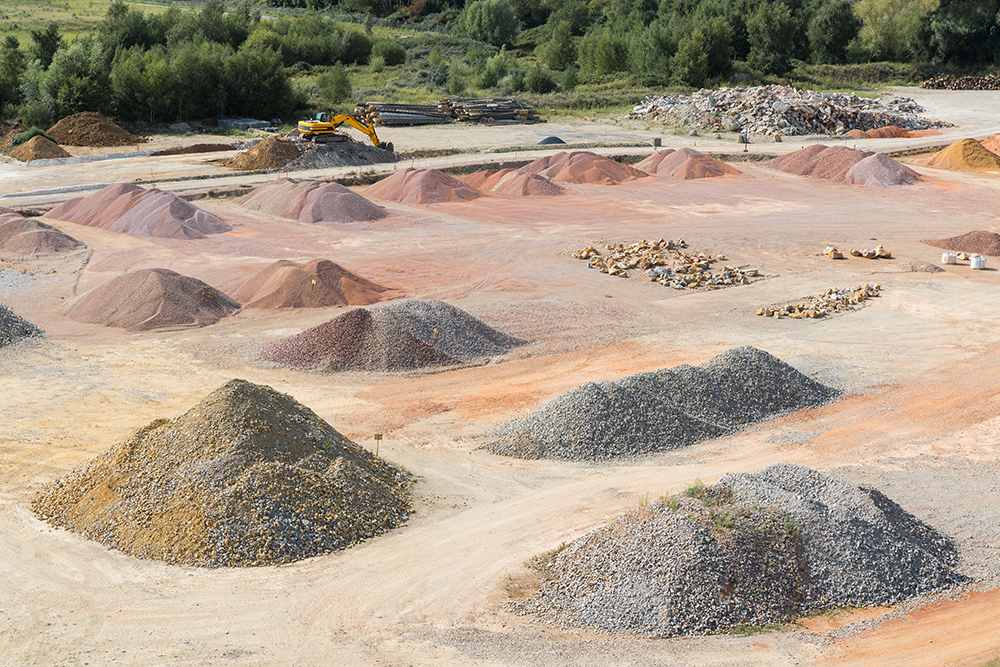
“The challenge for UNICEM is also to support companies in meeting environmental challenges, such as transition to a circular economy.”
Which of UNICEM’s numerous pro-mineral extraction industries’ initiatives in recent years does Boisselon, who finishes his three-year term as president in 2023, think has been most successful?
“Among the many battles that UNICEM has waged to defend the collective interests of the profession, I would highlight UNICEM’s proactivity in environmental preservation. This year, we celebrated the 30th anniversary of the profession’s commitment to sustainable development, with a dedicated press conference on April 21. With the Environment Charter for the quarrying industries, it was one of the first industries to adopt an environmental sectoral approach in 1992. Since 2017, the UNICEM Enterprises Engagements association has also been offering a sectoral CSR [corporate social responsibility] label, assessed by independent third-party organisations to facilitate our companies’ commitment to CSR. To date, some 1,600 sites are involved in these initiatives. More than 500 sites are positioned at the maturity and exemplary levels of the CSR approach. This is a great success that reflects the daily commitment of companies!”
Boisselon says a great strength of mineral extractive industries’ companies is their “agility”. “The latest example of this is as part of the anti-waste law for a circular economy (AGEC), the extended producer responsibility (EPR) system has been extended to construction products and materials in the building sector. To respond to this new orientation, the professional unions (FIB, Routes de France, SFIC and SNBPE, UNPG - both members of UNICEM) have created and participate in the shareholding of an eco-organisation, ECOMINERO, for mineral construction products generating inert waste. ECOMINERO was created by and for manufacturers of mineral construction products or materials, with the aim of simplifying the life of companies, so that they can fulfil their obligations arising from the implementation of EPR, and fully meet the recycling targets set by the AGEC law.”
In its representation of 75% of companies in the French mineral extractive industries and building materials manufacturing sector, which between them generate nearly €7 billion in annual turnover, UNICEM is also a leading economic player.
To support this dynamic, the federation has an economics department whose mission is to carry out studies to give visibility to all the actors involved in the sector and a statistics department which, by delegation from INSEE (National Institute of Statistics and Economic Studies), carries out annual, monthly or specific sector surveys.
I am keen to get Boisselon’s take on the current trading health of the French mineral materials industry, and its growth prospects.
“The results for 2021 show a return to 2019 activity levels, with an estimated increase in production of around +10% at the end of December 2021 (vs. 2020) for aggregates and ready-mix concrete (RMC), bringing volumes to 360 million tonnes for aggregates and 40.7 million m³ for RMC. While the rebound in activity observed in 2021 has almost erased the loss of volumes suffered by materials companies during the confinements, the stigma of the COVID-19 pandemic has not disappeared. The global health crisis has caused numerous production tensions – such as supply shortages, recruitment difficulties, and higher production costs. With the war in Ukraine, these tensions are not expected to ease in the coming months, as initially assumed. Indeed, given the current geopolitical context, an energy supply shock, comparable to the oil shock of the early 1970s, cannot be ruled out, with the known consequences for inflation and growth. For the time being, on the construction side, the latest indicators suggest that activity is holding up well at the start of 2022, even if the single-family home market has lost some of its strength. Conversely, activity is tending to improve in the public works sector, although public order books are still slow to fill up.
“Overall, our scenario for 2022 still favours maintaining a demand for materials that is not far from that observed in 2021 for ready-mix concrete, and even a very slight increase for aggregates (<1%). The constructive dynamics in the building order books will continue to feed the needs in ready-mix concrete, while the aggregates market could benefit from a gradual strengthening of public works activity, via the increase in the stimulus plan and the return of local authority projects (start of the new electoral cycle). However, the surge in production costs linked to the Russian-Ukrainian conflict and the rise in uncertainties could curtail the momentum and volume of public and private projects. And even if the cash flow situation of local authorities appears solid, the increase in construction costs could lead to some downward adjustments in the budgets devoted to infrastructure investments, the extent of which is still difficult to estimate at this time.”
Like other industries across Europe, the French mineral extraction industries have had to adjust over the last two-and-a-half years to the myriad challenges linked to the coronavirus pandemic. Does Boisselon think the pandemic will have a lasting impact on the French mineral extraction sector?
“During this period of health crisis, the industries have shown their resilience in the face of market tensions by ensuring the supply chains of its customers on construction sites.
“In concrete terms, the companies and their collaborators mobilised to maintain the activity on the territory by protecting the employees of the sector by respecting the sanitary rules and the protocol of recommendations of the sector with the aim of preserving the supply of the building sites in materials. During this period, UNICEM member companies have chosen to maintain their economic activity, even though many of them were facing a collapse of their orders. Almost no quarry site in France was at a standstill!
“The profession has adapted to the exceptional context but has not changed its mode of operation. On the other hand, this crisis has shown that our companies are an essential link in the production chain, which has made it possible to support the rapid recovery of the construction industry desired by the Government. It has also highlighted our dependence on imported products and consequently the importance of giving priority to local channels whatever the product supplied. This is particularly true for the mineral industry. We represent a 100% local industry that works through and for the territories. And maintaining the proximity of our sites to the construction sites is a permanent point of attention.
“Indeed, it is this territorial network that allows us to limit transport between extraction sites, production sites and then use sites and therefore the associated CO2 emissions. Natural aggregates are produced within a 30-kilometre radius of their place of consumption; for recycled aggregates, the distances are even shorter due to the necessary optimization between sites, transport, and processing platforms. Similarly, ready-mix concrete, a material now considered essential, travels an average of 17 kilometres, and even less in urban areas (implementation within two hours of its manufacture).”
Turning his attention to the key topic of mineral extraction industries’ sustainability, Boisselon says: “Forerunners at the European level, French aggregate producers have carried out a carbon assessment of the profession, from extraction to the first user, using the ADEME method. The downstream transport of aggregates by road is the main source of GHG [greenhouse gas] emissions (54%), followed by the energy consumption of quarry machinery (18%). The main lever for action is therefore the type of motorisation of equipment (trucks, machines). It should also be emphasised that the quality of redevelopment can promote CO2 sequestration within the perimeter of quarries.
“To return to the question of engines, companies in the sector and all equipment manufacturers are working to design engines that can use alternative energies: hydrogen, biofuel, and LNG (liquified natural gas). On the business side, groups and SMEs are already using alternative engine technologies. They are mainly developed for the transport of materials. These examples are not yet generalizable or deployed on a large scale, but they reflect the commitment and willingness to act of companies in the sector. In 2017, the first router with zero polluting emissions was put into circulation. The natural gas engine and the electrically operated tank on a lithium battery make it possible to significantly reduce emissions: - 70% NOx, - 92% fine particles, - 96% CO2 emissions.
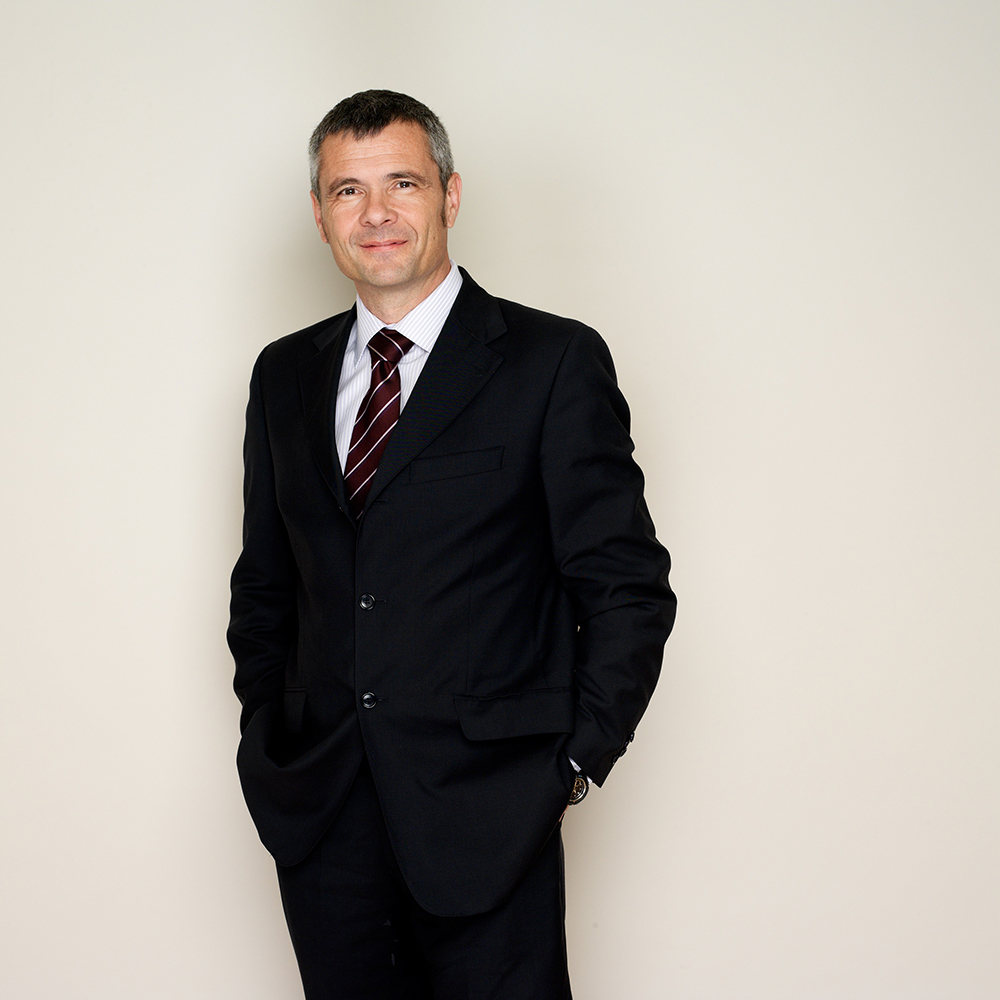
“In 2018, in Switzerland, the green dumper made its appearance. When it descends loaded with aggregates, the dumper, instead of braking and dissipating energy in the form of heat, generates electricity thanks to its electric motorization. The 123 tonnes of weight can thus produce a large amount of electricity. Once unloaded, the lightened truck (which weighs 58 tonnes when empty) goes back up the slope thanks to the electricity stored in its batteries (lithium-nickel-manganese-cobalt with a capacity of 600 to 700kWh). With 20 round trips per day, the dumper saves between 50,000 and 100,000 litres of fuel each year, which means a reduction in greenhouse gas emissions of about 130 tonnes/year. In 2020, a company was equipped with a compressed natural gas station that can now recharge three trucks. In the long term, this company’s objective is to be able to run a fleet of 30 trucks on natural gas. The production of gas is partly based on agricultural residues recovered by methanisation, a good example of circular economy.
“The processes are constantly evolving with the aim of promoting energy savings. In a quarry, the use of conveyor belts to transport materials is still preferred to limit the consumption of fossil fuels by the machines. In factories or processing workshops, for example, skylights are installed to reduce electricity consumption. Topographic surveys by drone facilitate and professionalise the work of teams on the sites.”
Boisselon, who is married and has a busy family life with his four children and six grandchildren, sees attracting talent to the mineral extractives industries sector as an “essential” issue.
“The sector’s age pyramid shows that a third of employees are over 50 years old and companies in the “quarries and materials” sector will need to recruit 1,400 employees every year for 20 years. And we have many assets to attract them.
“Our jobs are close to rural and peri-urban populations: 58% of employees are employed by establishments located outside of all urban areas. Our jobs are permanent: the authorization period for a quarry is at least 15 years; and it is unlimited for ready-mix concrete production units... They cannot be relocated. The materials of the sector are produced locally for a local market. Aggregates and ready-mix concrete are produced and used locally within a radius of 30-to-50 kilometres. Our jobs are diversified and accessible to all: We offer a wide range of jobs: from machine driving to engineering, from applied geology to stone cutting. These jobs require a level of qualification from CAP to BAC +5 (engineering degree) through BTS.”
Boisselon says UNICEM and its members reflect a modern industry that responds to societal and environmental issues and is focused on innovation, whether in processes, such as the use of new technologies via topographic survey of quarry sites by drones, in work tools or in research, with a number of companies operating their own product research centres.
He emphasises how the French mineral extraction industries and national manufacturers of construction materials are also committed to the environment and CSR through UEE (UNICEM’s association of companies committed to implementing sustainable development work), and in their compliance with the French Environment Ministry’s ERC doctrine (avoid-minimise-compensate) fostering biodiversity offsetting for environmentally disruptive works.
Boisselon is also encouraged by figures showing that the employee turnover rate in the sector is five times lower than the French average.
“To highlight these assets and promote the industry, UNICEM participates in numerous job fairs throughout France, and has formed partnerships with the French employment agency (Pôle Emploi) and schools to raise student awareness of the industry. In addition to these ‘field’ actions, we are also adapting our information channels: we are developing the presence of the sector and the presentation of the professions on social networks, including Instagram, and we are working on a new website for next fall.
“We are also working on the place of women in the sector. Today, the employees of the sector are mostly men, but the feminisation is well underway and 17% of the employees are women. We need to tell women that they have their place in the “quarries and materials” sector. Moreover, on International Women’s Rights Day, we launched a campaign on social networks in which women in the sector talk about their daily lives in the sector.”
As well as holding union mandates at French regional and national levels, Boisselon is a former chairman of the Environment Committee of UEPG (European Aggregates Association).
I am keen to find out about the role UNICEM plays in the wider European mineral materials industry, and how important it is for the association to work with its counterparts in national industry associations.
“As a federation of ‘specialty’ unions, UNICEM does not have a strict equivalent at the European level. However, each UNICEM union works and participates in the work of European unions. The French aggregate producers actively participate in the work of UEPG (European Aggregates Association), the French ready-mix concrete union collaborates with ERMCO (European Ready Mixed Concrete Organisation). These exchanges are essential to prepare and align positions for European debates, to follow the evolution of standards and regulations and to promote the sharing of best practices between members.
“I am personally aware of the importance of the work at this European level, as I have been very involved in UEPG bodies and have led its ‘Environment’ group.”
We end our conversation with Boisselon’s thoughts on the long-term future for the French mineral extraction industries. “The challenges are numerous. We must accompany sustainability transitions, make better known our actions, and defend the economies of our industries.”

